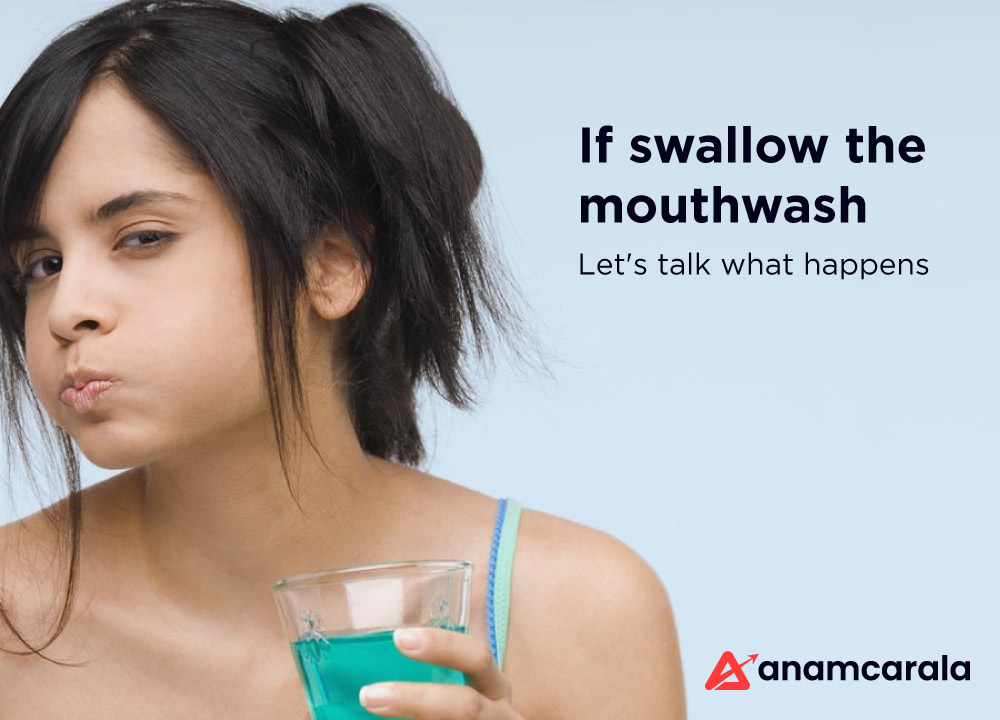Swallowing mouthwash can lead to mild to moderate symptoms such as nausea, vomiting, and abdominal discomfort. Ingesting large amounts of mouthwash containing high levels of alcohol may result in more severe effects, including intoxication, dizziness, and even alcohol poisoning.
We have already discussed the best mouthwash for gum disease, Now we will discuss What happens if you swallow mouthwash.
What are the symptoms of swallowing mouthwash?
- Nausea
- Vomiting
- Abdominal pain
- Dizziness
- Headache
- Throat irritation
- Difficulty breathing
- Changes in heart rate
- Confusion or disorientation
- Unconsciousness (in severe cases)
If a child swallows the mouthwash
If a child swallows mouthwash, it is important to take immediate action. Call poison control or seek medical attention right away. Provide them with as much information as possible, such as the brand and quantity swallowed. While waiting for help, do not induce vomiting unless instructed by a medical professional. Stay calm and closely monitor the child’s condition until medical assistance arrives.
If an adult swallows the mouthwash
If an adult accidentally swallows mouthwash, it is generally considered safe in small amounts. However, consuming large quantities can lead to alcohol poisoning due to the alcohol content in mouthwash. It is advisable to seek medical attention if a significant amount has been ingested or if any adverse symptoms arise.
Can mouthwash be fatal when we swallow it?
Swallowing mouthwash in small amounts is generally safe, but consuming excessive amounts can be harmful. Certain mouthwashes contain high levels of alcohol, which can lead to alcohol poisoning if ingested in large quantities. It is important to use mouthwash as directed and seek medical attention if accidental ingestion occurs.
How much mouthwash is dangerous to swallow
Swallowing small amounts of mouthwash is generally considered safe, as it is designed for oral use. However, consuming large quantities of mouthwash containing alcohol or other harmful chemicals can be dangerous and potentially toxic. As it contains ingredients that are not intended for ingestion. The exact amount can vary depending on the specific product and its concentration, but any amount should be considered potentially harmful. If you or someone you know ingests a significant amount of mouthwash, it is advisable to seek immediate medical attention.
What to do after swallowing mouthwash
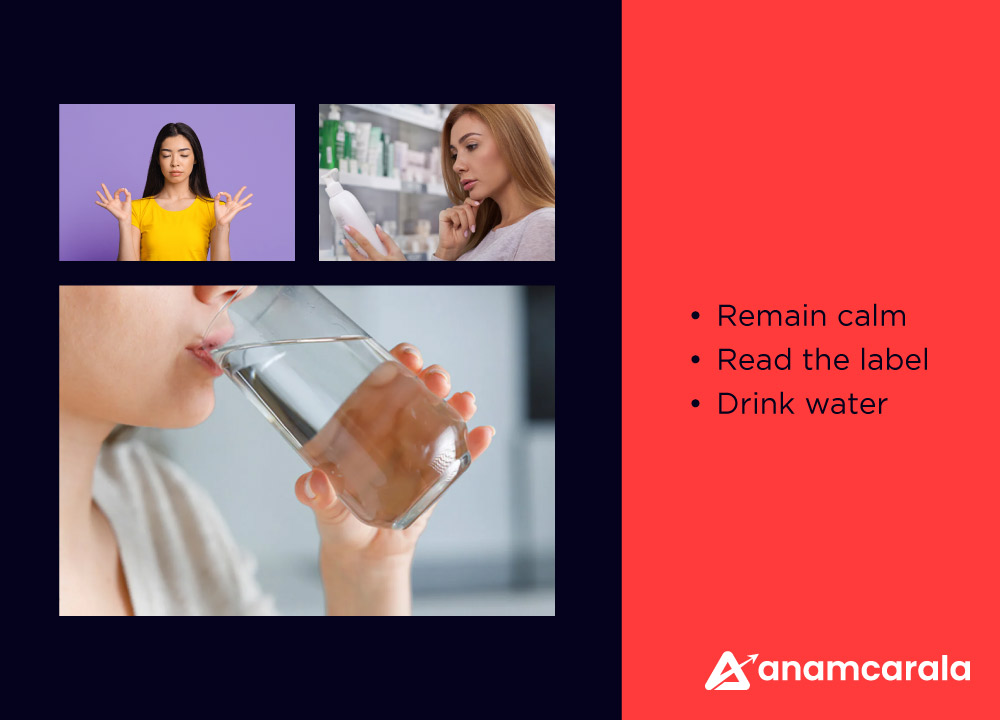
If you have accidentally swallowed mouthwash, here are a few steps to consider:
- Remain calm: Swallowing a small amount of mouthwash is usually not a cause for major concern. Stay calm and try not to panic.
- Read the label: Check the bottle for any specific instructions or warnings regarding ingestion. Different mouthwash products may contain varying ingredients, so it’s essential to know what you have swallowed.
- Drink water: Rinse your mouth with water to dilute the mouthwash in your system. This helps minimize any potential irritation.
- Monitor your symptoms: Keep an eye out for any adverse reactions or unusual symptoms. While swallowing a small amount of mouthwash is generally harmless, it’s important to be aware of any unexpected effects.
- Seek medical advice if necessary: If you experience severe symptoms or have any concerns, it’s advisable to contact a healthcare professional or consult a poison control center for guidance. They can provide specific advice based on your situation.
Remember, it’s always a good idea to seek medical advice if you have any concerns or if you experience severe symptoms after ingesting any substance.
When should you see a doctor for mouthwash swallowing?
If you accidentally swallow a small amount of mouthwash, it is typically not a cause for concern. However, you should see a doctor if you experience any adverse symptoms such as severe throat pain, difficulty breathing, chest pain, vomiting blood, or any other concerning symptoms. It’s always best to seek medical attention if you are unsure or if the symptoms persist or worsen.
What treatment may be required for swallowing?
- Evaluation by a healthcare professional
- Modified diet
- Swallowing therapy
- Medications
- Surgical intervention
- Adaptive devices
- Lifestyle modifications
It is important to note that the specific treatment approach for swallowing difficulties can vary depending on the underlying cause and individual circumstances. Consulting with a healthcare professional is essential for accurate diagnosis and tailored treatment recommendations.
What are some home remedies for swallowing mouthwash?
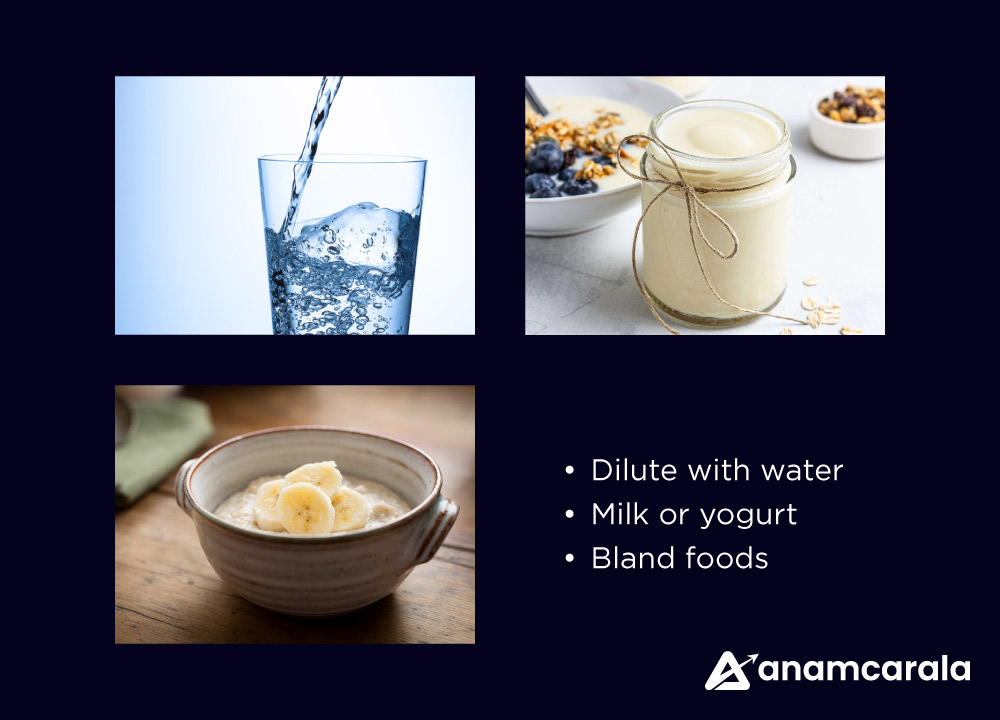
While we cannot provide medical advice, here are some general suggestions that may help alleviate discomfort or reduce the potential for irritation after swallowing mouthwash:
- Dilute with water: Drink a glass of water to help dilute the mouthwash and minimize any potential irritation.
- Milk or yogurt: Consuming dairy products such as milk or yogurt may help soothe the digestive system.
- Peppermint or chamomile tea: These herbal teas are known for their soothing properties and may help alleviate any discomfort.
- Bland foods: Stick to bland, easily digestible foods such as toast, rice, or bananas for a short period until any potential irritation subsides.
- Stay hydrated: Drink plenty of water throughout the day to stay hydrated and flush out any toxins.
Remember, these suggestions are not a substitute for professional medical advice. If you have any concerns or experience severe symptoms after swallowing mouthwash, it’s crucial to seek medical attention promptly.
How can you prevent yourself or others from swallowing mouthwash?
- Keep mouthwash out of reach of children.
- Store mouthwash in a secure location, away from food and beverages.
- Use a small amount of mouthwash and avoid swishing or gargling vigorously to minimize the risk of accidental swallowing.
- Supervise children and individuals with cognitive impairments while using mouthwash.
- Follow the instructions on the mouthwash bottle and avoid exceeding the recommended dosage.
- Use child-resistant caps or containers for storing mouthwash.
- Educate yourself and others about the potential dangers of swallowing mouthwash and the importance of rinsing and spitting it out.
- Consider using alcohol-free mouthwash, which is less toxic if accidentally swallowed.
- If accidental swallowing occurs or there are concerns, seek immediate medical attention or contact a poison control center.
What ingredients in mouthwash should you pay attention to for swallowing?
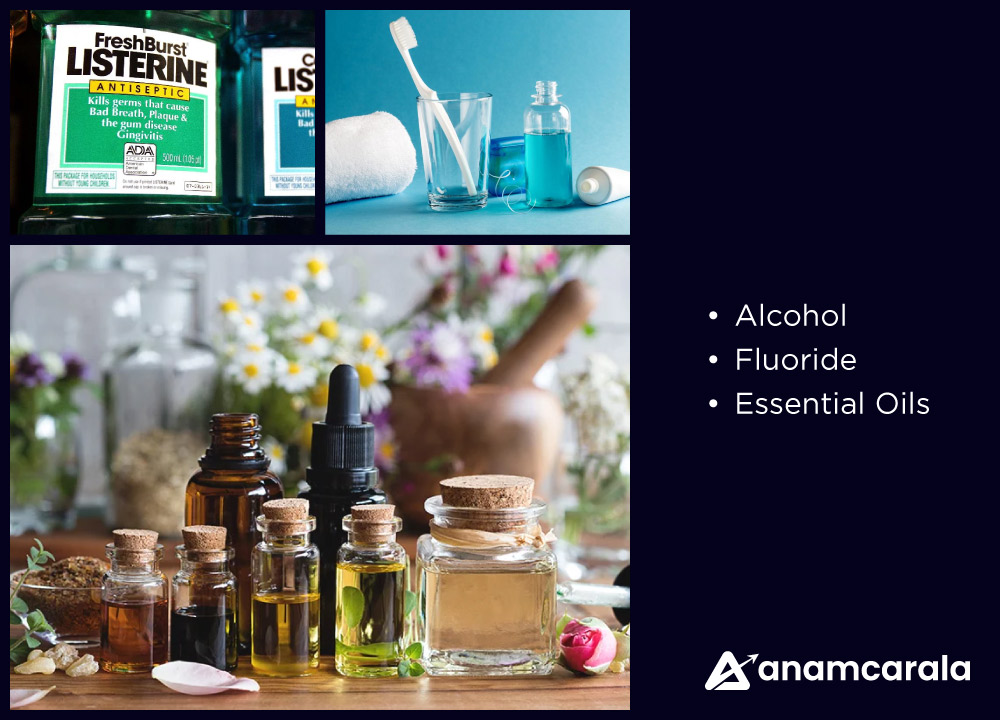
- Alcohol: Some mouthwashes contain alcohol, which should be avoided if you plan to swallow it, as it can cause irritation and dryness.
- Fluoride: Fluoride is commonly found in mouthwashes and can be beneficial for dental health. However, excessive ingestion of fluoride can be harmful, so it’s best to avoid swallowing mouthwash with high fluoride content
- Essential Oils: Certain mouthwashes contain essential oils such as eucalyptol, menthol, and thymol. While they are generally safe, swallowing large amounts may cause digestive discomfort.
- Chlorhexidine: This antibacterial ingredient is commonly used in prescription mouthwashes. Swallowing chlorhexidine can lead to an upset stomach or discoloration of the tongue and teeth.
- Sweeteners and Artificial Coloring: While not directly harmful, swallowing excessive amounts of sweeteners or artificial coloring in mouthwash may be unnecessary and could contribute to dietary concerns.
Which ingredients in mouthwash are toxic?
- Alcohol
- Chlorhexidine gluconate
- Hydrogen peroxide
- Methyl salicylate
- Thymol
- Formaldehyde
- Fluoride
- High Menthol
What does a mouthwash contain?
Mouthwash typically contains water, alcohol, and various active ingredients. These active ingredients can include antiseptics like chlorhexidine or cetylpyridinium chloride, fluoride for cavity prevention, and essential oils such as menthol or eucalyptol for freshening breath. Some mouthwashes may also contain additional ingredients like flavorings, colorants, and preservatives.
What are the effects of swallowing a small amount of mouthwash?
Swallowing a small amount of mouthwash typically leads to minimal adverse effects. However, potential consequences may include mild stomach irritation, nausea, and an unpleasant taste in the mouth. It is advisable to rinse your mouth thoroughly with water after accidental ingestion and seek medical advice if any concerning symptoms occur. As a general precaution, mouthwash should be used as directed and not swallowed intentionally.
Are there any alternatives to using mouthwash?
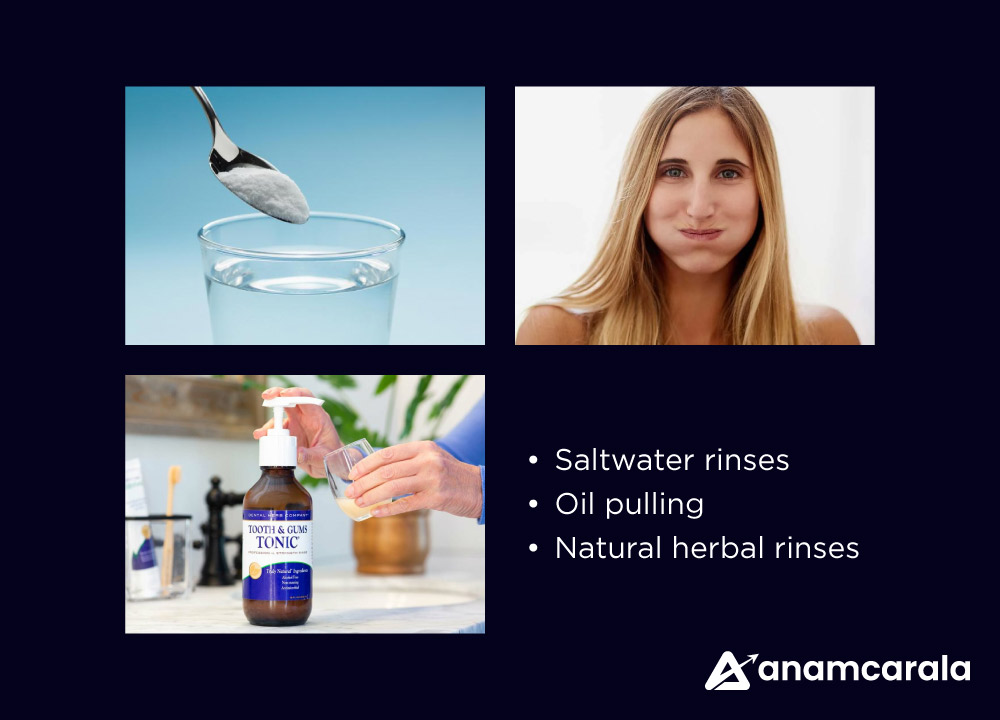
Yes, there are alternatives to using mouthwash. Here are a few:
- Saltwater rinses: Mixing salt in warm water and rinsing your mouth with it can help kill bacteria and reduce bad breath.
- Oil pulling: Swishing coconut oil or sesame oil in your mouth for about 10-20 minutes can help remove bacteria and improve oral hygiene.
- Natural herbal rinses: Some herbs like mint, sage, or thyme can be steeped in hot water to create a homemade mouth rinse that freshens breath.
- Baking soda paste: Mixing baking soda with water to create a paste and brushing your teeth with it can help neutralize odors and maintain oral health.
- Chewing sugar-free gum: Chewing gum stimulates saliva production, which helps cleanse the mouth and freshen the breath.
Remember, these alternatives may not provide the exact benefits of commercial mouthwashes, such as fluoride for cavity prevention or specific germ-fighting ingredients. It’s best to consult with a dentist for personalized recommendations.
Conclusion
While swallowing small amounts of mouthwash may not cause significant harm, it is important to exercise caution and seek medical advice if you accidentally swallow mouthwash, experience severe symptoms, or have concerns. Remember, mouthwash is intended for rinsing and gargling purposes only, and it is best to follow the instructions on the product label to maintain oral health and safety.

